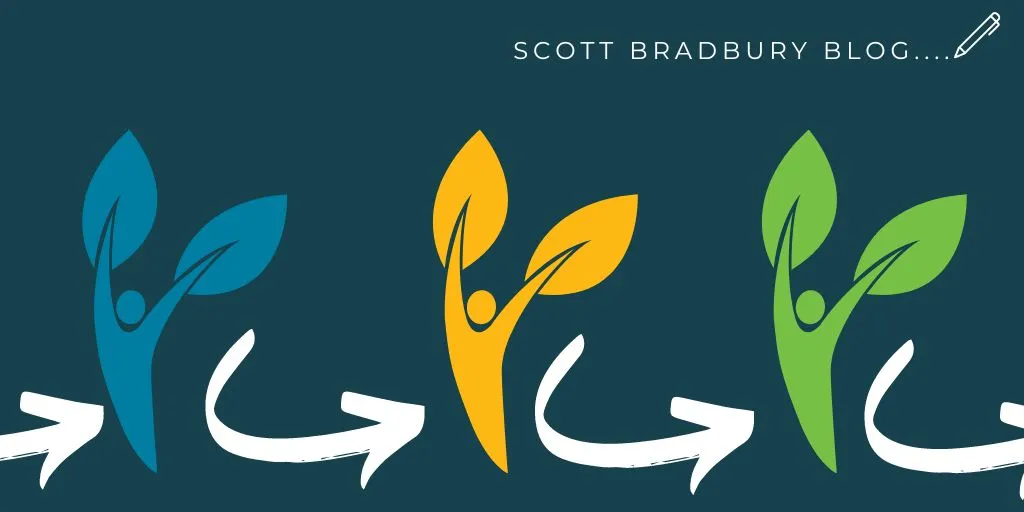
The UK Labour party used a strong ‘change’ message in its campaigning at last month’s general election, leading to a sweeping victory. Change is appealing when you’re unhappy with the status quo. And politicians know that. Change is a constant factor in our working lives too, so you’d think we’d be ‘good’ at it by now. But organisational change programmes get a mixed response and often encounter resistance. Opposition or unwilling compliance rather than positive implementation doesn’t bode well for the change. Sometimes people prefer to stay as they are.
It’s not change itself that people don’t like
Strategic shifts in direction, the introduction of new IT systems or the dreaded restructuring all come with challenges. But it’s important to understand that it’s not change per se that people don’t like. It’s a specific change that provokes resistance. And that resistance stems from people’s mindset, perspective and a sense of unfairness.
In my local area, the new government (with its focus on generating green energy) has just approved a scheme for a solar panel farm which will be the biggest in Europe. We’ll see change on a big scale locally. Inevitably, there is fierce resistance from many local people. But that’s because the change hasn’t been presented sympathetically. All the protestors see are the downsides, and they aren’t recognising any of the upsides. And the pain of the change is perceived to be unfairly shared.
Perspective
To be successful, we need people to embrace and support the specific change that we are proposing. And that means winning their commitment to it, through communicating the need for change and addressing the concerns that people raise. It’s only through exploring people’s objections and fears that we’re able to understand their perspective. And perspective is everything. Once we have a clear picture of their position, we can suggest ways forward that take account of objections and possibly even amend and improve the change proposal. In my local solar farm example, instead of the two opposing ‘sides’ refusing to budge, it would have been so much more productive to explore ways in which the developers could alleviate key fears and focus on what they can do positively for local communities instead of arguing unproductively.
In our podcast ‘Thriving Through Change’, Change Management Consultant Jooli Atkins describes how perspective enables us to transcend the immediate chaos and threat of change, enabling a more objective and calm assessment. She advocates using a technique called ‘Getting in the Loft’ to imagine yourself being physically removed from the situation to provide that all-important distance and perspective.
Skilful Communication
At the heart of all successful change initiatives is skilful communication. As our video ‘What to Say When Someone Rejects Change’ illustrates, you need to ask questions to find out what their objections are. Remember. it’s not change itself they don’t like, it’s this specific change. So it’s important to ask about their reasons for not wanting this particular change. People need to understand what the change entails, why it’s a ‘good’ thing and how it will affect them as individuals. Any ‘pain’ associated with the change needs to be perceived to be shared fairly, along with the benefits too. Our video ‘Change: What Managers Must Do’ expands on this.
Agility and Adaptability
Our mindset significantly influences our response to change. Adopting an open mindset, receptive to new opportunities, encourages us to perceive change as a chance to develop our knowledge and skills. If we equate change with exciting possibilities for achieving growth, better performance and fulfilment, we’re in a much better place mentally for dealing with - and overcoming - any associated negative implications too.
Evidence of agile thinking and adaptability is frequently included in modern job specifications and leadership frameworks. An ability to reframe difficulties in terms of energising challenges and positive developments enables people to navigate ‘hiccups’ more readily along the way. Ultimately, it leads to more successful change implementation.
Self-Awareness
Before learning to become more agile and adaptable, we first need to become more self-aware. We need to be able to cope with the emotion (our own and that of others) that often accompanies change. Understanding our personal response to change is essential in enabling us to manage its impact on us. Being aware of our own emotions, thoughts and behaviours, and reflecting on how and why we react in the way we do in the face of change, enables us to empathise with the feelings and reactions of others. And that helps us to become better communicators and leaders of change. Whether people are excited or terrified by the idea of a specific change, by understanding the reactions to it, we are better equipped to deal with them.
Change for Good
They say ‘Change is as good as a rest’ but I don’t think there’s going to be much ‘rest’ in government departments over the coming months and electoral voters won’t feel they can now put their feet up either! Similarly, organisational changes don’t last for ever in our constantly evolving workplaces. But nevertheless, change can be a force for good. And that’s energising and exciting. I assume that’s where the adage comes from. ‘Change for Good’ is the title of our interactive Skills Challenge accompanying our video programmes on this topic. Change is a leadership issue and although strategic changes are decided upon by your senior management team, it’s your frontline managers who are charged with delivering it. Share this interactive test with them to see how they do - and why not have a go yourself now?
For a free trial of WATCH & GO® resources, including titles on ‘managing change’, ‘implementing change’ and ‘adaptability’ and much more, please go to: https://www.scottbradbury.co.uk/free-trial/
Catherine de Salvo
1 August 2024
You can contact Catherine at catherine@scottbradbury.co.uk or via LinkedIn